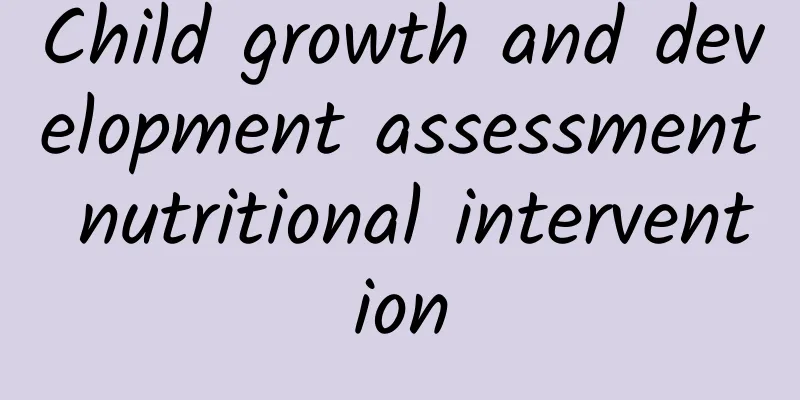Good sleep reduces risk of acute kidney injury

|
In modern society, problems such as lack of sleep and insomnia are becoming more and more common, and these problems are closely related to health. Previous studies have shown that various sleep behaviors, such as excessive/short sleep time, excessive daytime sleepiness, insomnia and snoring, are all related to decreased renal function. In addition, sleep is multifaceted, and sleep patterns mainly include five sleep behaviors: sleep time, sleep type (early/late sleep type), insomnia, snoring, and excessive daytime sleepiness. Various sleep behaviors affect each other and jointly affect physical health. However, it is not clear whether there is an association between the above-mentioned different sleep behaviors and comprehensive sleep patterns and the risk of acute kidney injury . The picture is from the Internet, the copyright belongs to the original author In response to the above-mentioned clinical problems, the National Clinical Research Center for Kidney Diseases, Nanfang Hospital, Southern Medical University, conducted relevant work to explore the prospective association between five sleep behaviors and sleep patterns and new-onset acute kidney injury in the general population . The research results were recently published in the journal Sleep Health . The study found that healthy sleep patterns, adequate sleep time (7-8 hours/day), early bedtime, never or rarely insomnia, and no frequent daytime sleepiness are independently associated with a reduced risk of new-onset acute kidney injury. Professor Qin Xianhui of the National Clinical Research Center for Kidney Diseases, Nanfang Hospital, Southern Medical University is the corresponding author of the article, and graduate student Gan Xiaoqin and physician He Panpan are co-first authors. The study used data from the UK Biobank, which included more than 370,000 participants with a baseline glomerular filtration rate ≥30 mL/min/1.73 m² and no acute kidney injury. A healthy sleep pattern is defined as: sleeping 7-8 hours a day, going to bed early, never or rarely suffering from insomnia, not snoring, and no frequent daytime sleepiness . The healthy sleep score of each participant was calculated based on the five factors of the healthy sleep pattern mentioned above. Each factor was scored 1 point if it met the standard. The higher the score, the better the overall sleep quality (Figure 1). Figure 1 Calculation of healthy sleep score During the 12-year follow-up, 14,492 (3.9%) participants developed acute kidney injury. Overall, maintaining a healthy sleep pattern was significantly inversely associated with the risk of new acute kidney injury; each 1-point increase in the healthy sleep score significantly reduced the risk of acute kidney injury by 5%. At the same time, the genetic risk score for acute kidney injury had no significant modifying effect on the association between healthy sleep score and the risk of acute kidney injury; that is, maintaining a healthy sleep pattern would have the same degree of benefit regardless of whether the genetic risk for acute kidney injury was high or low . In addition, sleeping 7-8 hours/day (compared with sleeping <7 hours or ≥9 hours), going to bed early (compared with going to bed late), no insomnia or rarely insomnia (compared with sometimes/often insomnia), and no frequent daytime sleepiness (compared with frequent/always daytime sleepiness) were significantly associated with a lower risk of acute kidney injury. This study comprehensively evaluated the relationship between sleep patterns and the risk of acute kidney injury, emphasizing the important clinical value of maintaining healthy sleep in preventing acute kidney injury. This article reminds everyone again: Have a good sleep, It’s really important! References: Gan X, He P, Ye Z , Zhou C, Liu M, Yang S, Zhang Y, Zhang Y, Qin Editor | Gan Xiaoqin, He Panpan, Huang Yu Audit | Qin Xianhui |
<<: Cancer may strike quietly. Have you caught these body signals?
>>: Small element, big effect! Scientific supplement, "iodine" brightens your life!
Recommend
Causes of breast tenderness in early pregnancy
After pregnancy, everyone's body changes are ...
What is the cause of bloody watery leucorrhea
Gynecological diseases have a very high incidence...
Postpartum farts are very smelly
Farting after childbirth is a particularly troubl...
How to treat breast hyperplasia?
Getting sick is a common phenomenon, but any dise...
If one person has epilepsy, the whole family is worried. How should family members provide good home care?
For epilepsy patients, in addition to hospital di...
What causes no follicles?
The egg is composed of an oocyte in the ovarian c...
Long placenta causes brown discharge
Pregnancy is sometimes a process that turns sadne...
How long does it take to recover from endocrine disorders?
After women enter puberty, the uterus and ovaries...
How to find the settings of VIVO mobile phone? Things to note when charging VIVO mobile phone for the first time
Most of today's smartphones support screen mi...
Can people with high uric acid eat pig skin? One piece of data will help you answer all your questions
Speaking of high uric acid, many people may not b...
What are the symptoms of menopausal hot flashes
Female menopause refers to the time around 50 yea...
Why does the cat always lie in the litter box? What should I do if the cat poops on the edge of the litter box?
The cat litter box is where the cat urinates and ...
What are the dangers of drinking alcohol?
What harm will drinking during menstruation cause...
Is it OK to eat too much salt after abortion?
As life progresses, many of my friends are under ...
Menstruation has not come, white discharge is brown
I believe that many women in life will record the...









